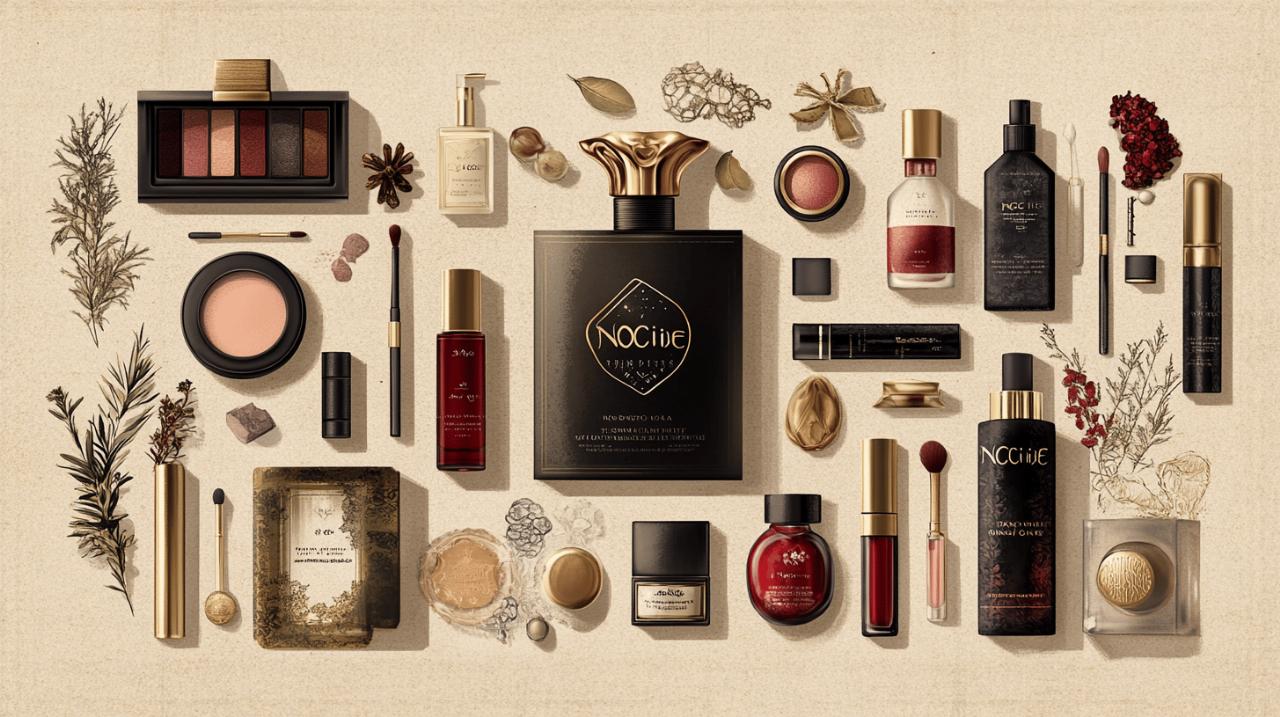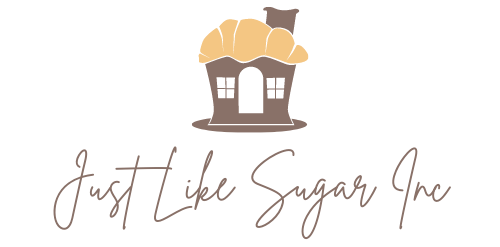Nocibé stands as one of France's most distinguished beauty retailers, offering a comprehensive range of perfumes, skincare, and cosmetics. Its journey from a modest wholesaler to a major player in the European beauty industry exemplifies remarkable business acumen and adaptability. This guide explores the fascinating evolution of Nocibé, unpacking its rich history, visual identity, corporate structure, and current market position.
The Birth and Evolution of Nocibé
From humble beginnings to beauty giant
Nocibé's story begins in 1924, when it was established as Vercamer SA, operating primarily as a cosmetics wholesaler. The company's headquarters were established in Villeneuve d'Ascq, France, where it continues to be based at 2 rue de Ticlénii. For six decades, the business maintained its wholesale operations, but a significant shift occurred in 1984 when Nocibé ventured into retail, marking a pivotal moment in the company's trajectory. This strategic decision to open physical stores directly serving consumers allowed the brand to connect more intimately with its customer base and establish a more visible presence in the French beauty market.
Key milestones in nocibé's journey
The 1990s represented a period of substantial growth and transformation for Nocibé. In 1997, the company took the significant step of going public, opening itself to investment and setting the stage for expansion. Shortly thereafter, in 1998, Nocibé was acquired by Dutch company Kruidvat, introducing foreign ownership into its corporate narrative. However, the French character of the business was reasserted in 2002 when Daniel Vercamer led a management buyout, returning control to French leadership. By 2001, Nocibé had achieved impressive sales figures of EUR 323 million, reflecting its growing influence in the beauty retail sector. Throughout these transitions, the company maintained its focus on personalised beauty care and exceptional customer service, values that continue to define the brand today.
Decoding the nocibé brand identity
The meaning behind the name nocibé
The name Nocibé itself carries cultural significance within the French beauty landscape. While the original meaning behind the name is not explicitly documented in available sources, it has become synonymous with premium beauty products and personalised service in France. The selection of this distinctive name helped differentiate the brand when it transitioned from wholesale to retail operations in the 1980s. Unlike some competitors with more generic names, Nocibé created a unique identity that French consumers could immediately recognise and associate with quality cosmetics and fragrances. This naming strategy has proven effective, as Nocibé has secured its position among the top three perfume retailers in France.
Logo transformations through the decades
The visual identity of Nocibé has evolved alongside its business growth. While specific details about each logo iteration are not provided in the sources, the brand has maintained certain visual elements that reinforce its market positioning. One notable aspect of Nocibé's branding strategy has been the development of a sub-brand called Process Blue, under which some of its stores operate. This dual-brand approach allows Nocibé to target different market segments while maintaining cohesive brand recognition. The visual language employed by Nocibé typically emphasises elegance and sophistication, reflecting the premium nature of the products it offers. Throughout its various logo transformations, the brand has likely balanced maintaining recognition with refreshing its image to remain contemporary in the competitive beauty retail sector.
Corporate structure and ownership
Parent companies and business affiliations
Nocibé has experienced several changes in ownership throughout its history, reflecting the dynamic nature of the retail cosmetics industry. After its initial public offering in 1997, the company was acquired by Dutch retailer Kruidvat in 1998, marking its first foreign ownership. Following the management buyout led by Daniel Vercamer in 2002, the company entered a new chapter of independent operation. However, this independence was relatively short-lived, as Nocibé was later acquired by Charterhouse Capital Partners, a London-based private equity firm that can be reached at +44 20 7334 5300. Charterhouse, which is regulated by the Financial Conduct Authority, held ownership of Nocibé from 2006 to 2014, overseeing a period of significant expansion for the French beauty retailer.
Strategic acquisitions and partnerships
During the Charterhouse ownership period, Nocibé pursued an aggressive growth strategy, increasing its store count from 356 to approximately 450 locations. This expansion solidified the company's presence throughout France and strengthened its competitive position against other major beauty retailers. In 2014, Charterhouse Capital Partners sold Nocibé to Advent International, another private equity firm, signalling yet another transition in corporate oversight. These changes in ownership reflect broader trends in the retail sector, where private equity investment often drives expansion and operational refinement. Throughout these transitions, Nocibé has maintained its core focus on beauty retail while benefiting from the financial resources and strategic guidance provided by its various corporate parents.
Nocibé's business operations and market position
Retail strategy: brick-and-mortar and digital presence
Nocibé operates over 300 physical stores across France under both the Nocibé and Process Blue banners. This extensive retail network allows the company to maintain a strong physical presence in cities and towns throughout the country. With 2,000 employees, Nocibé has developed a workforce focused on providing personalised beauty advice and exceptional customer service, distinguishing it from more self-service oriented competitors. While the sources do not provide specific details about Nocibé's digital strategy, it is reasonable to assume that like most modern retailers, the company has invested in e-commerce capabilities and digital marketing to complement its brick-and-mortar operations. The dual approach of maintaining physical stores while developing online channels allows Nocibé to serve customers across multiple touchpoints, adapting to changing consumer shopping preferences.
Target demographics and product range
Nocibé has positioned itself as a provider of premium beauty products, targeting consumers who value quality and personalised service. The retailer offers an extensive range of perfumes, cosmetics, and skincare products, catering to various beauty needs and preferences. By focusing on individual beauty care rather than mass-market approaches, Nocibé appeals to customers seeking expert guidance and premium products. The company has expressed ambitions for international expansion beyond its French home market, suggesting plans to bring its retail concept to new territories. As one of the top three perfume retailers in France, Nocibé competes directly with global giants like Sephora while maintaining its distinctive French character and approach to beauty retail. This balanced strategy has allowed Nocibé to carve out a sustainable position in the competitive beauty retail landscape.
Leadership and key figures
The success of Nocibé, a leading French perfume and cosmetics retailer, has been shaped by significant leadership figures throughout its nearly century-long history. Since its humble beginnings as Vercamer SA in 1924, the company has evolved from a cosmetics wholesaler into one of France's top three perfume retailers with over 300 stores nationwide. This growth journey has been marked by strategic leadership decisions and structural changes that have positioned Nocibé as a formidable presence in the beauty retail sector.
Daniel vercamer's impact on nocibé
Daniel Vercamer stands as a pivotal figure in Nocibé's modern history. Following the acquisition by Dutch company Kruidvat in 1998, Vercamer spearheaded a management buyout in 2002 that reshaped the company's trajectory. This bold move returned control to French leadership and set the stage for significant growth. Under Vercamer's guidance, Nocibé strengthened its market position, growing to employ approximately 2,000 staff across France. His leadership was instrumental during a crucial period when Nocibé reported sales of EUR 323 million (roughly $300 million) in 2001. Vercamer's vision emphasised customer service excellence and personalised beauty care, establishing core values that continue to define the Nocibé brand identity today. His strategic direction laid the groundwork for the company's later transitions between various private equity ownerships while maintaining its distinctive French retail character.
Management structure and decision-makers
Nocibé's corporate governance has undergone several transformations through private equity ownership cycles. After going public in 1997, the company experienced a series of ownership changes that shaped its management structure. Following the 2002 management buyout, Nocibé was acquired by Charterhouse Capital Partners, a London-based private equity firm, in 2006. During Charterhouse's eight-year ownership until 2014, Nocibé experienced remarkable growth, expanding from 356 stores to approximately 450 locations across France. This period demonstrated the effective collaboration between the private equity leadership and operational management. In 2014, Charterhouse sold Nocibé to Advent International, marking another chapter in the company's ownership structure. Throughout these transitions, Nocibé has maintained its focus on the French perfume and cosmetics market whilst operating stores under both the Nocibé and Process Blue brands. The management team has consistently prioritised growth strategies, balancing brick-and-mortar expansion with adaptation to changing retail landscapes. This management approach has enabled Nocibé to remain competitive in the challenging beauty retail sector whilst exploring opportunities for international expansion beyond its French roots.
